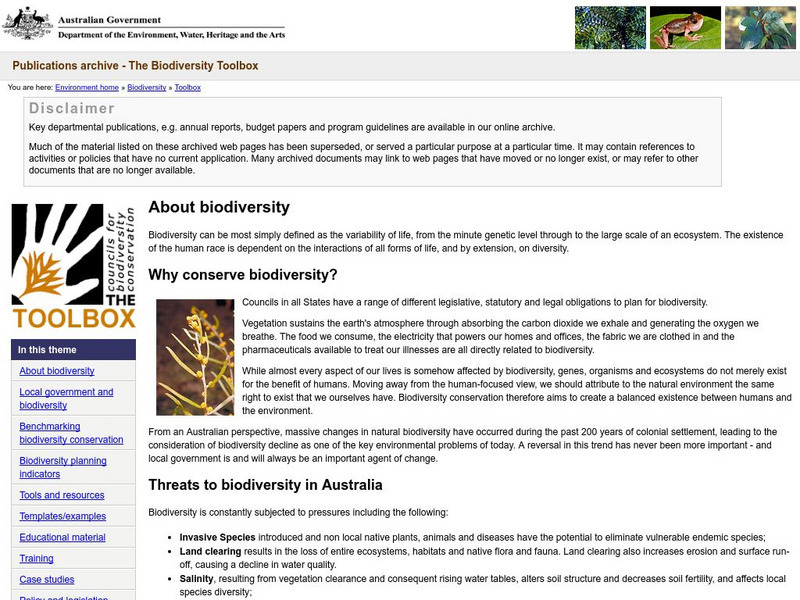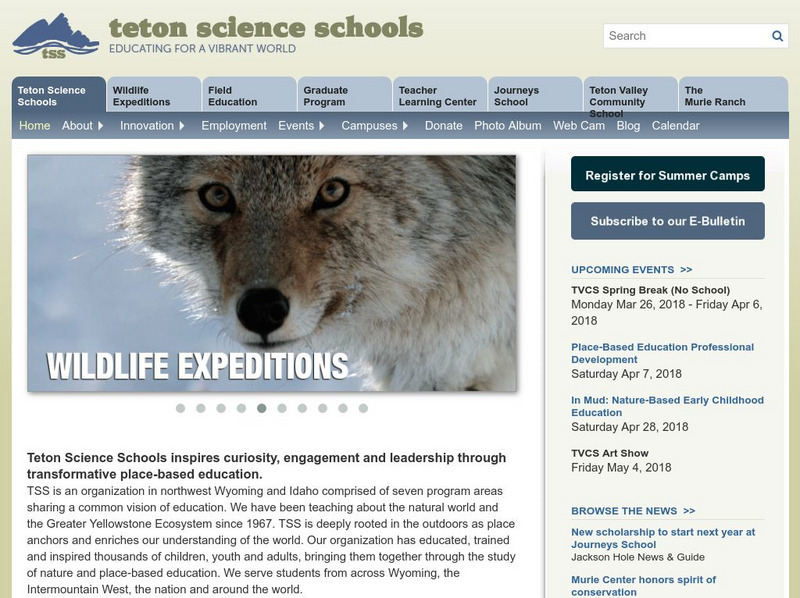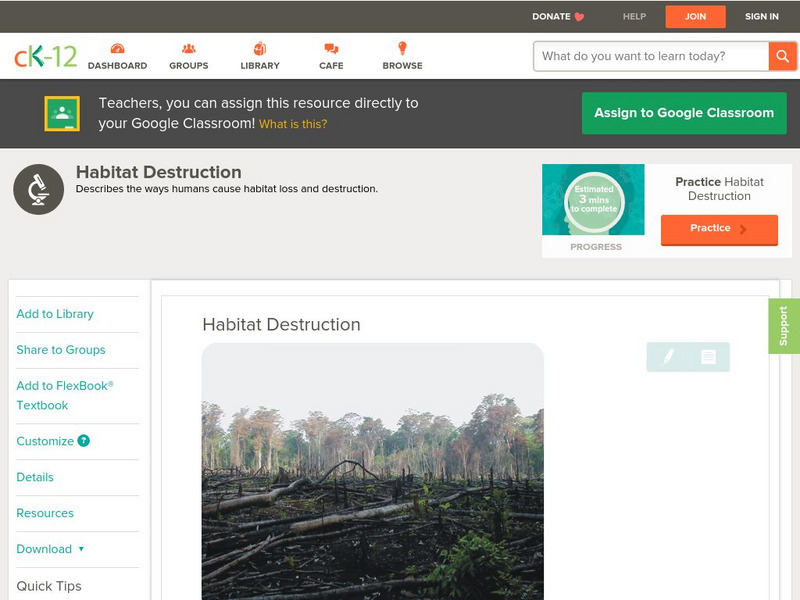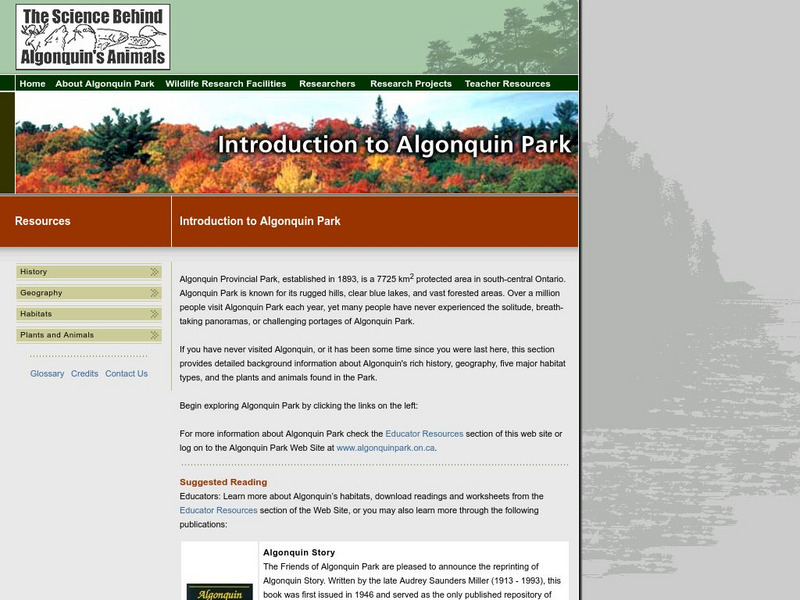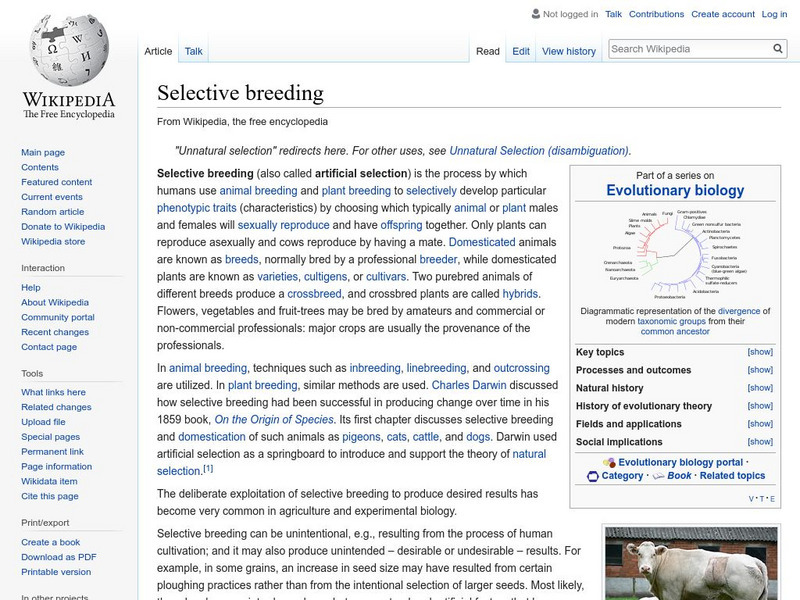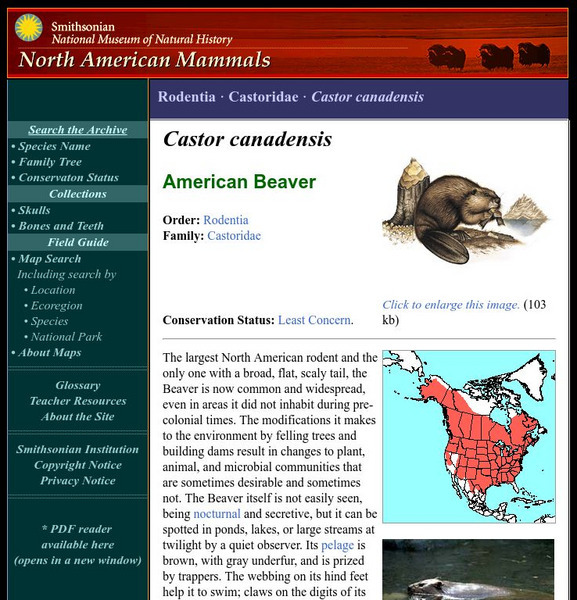Environmental Education for Kids
Eek!: Species With Status
Learn about the different status designations for animal and plant species. Explains what is meant by Endangered, Threatened, Special Concern, Alien Invaders, Locally Common, Common but Declining, Common, Abundant, Uncommon, and...
Environmental Education for Kids
Eek!: Teacher Resources: Identifying Alien Invaders
In this lesson, students will identify native and exotic plant and animal species through observation and research, and identify the effects of introduced species on ecosystems.
Nature Canada
Nature Canada: Suffield National Wildlife Area: Plants at Risk
Suffield National Wildlife Area in Alberta is home to at least sixteen plant and animal species at risk. Several of the plants are described in detail here. Additional links provide more information.
Other
Biodiversity Tool Box: About Biodiversity
An extensive site detailing Australia's committment to biodiversity conservation, including a list of threats and proposed plans of action as outlined in the "Environment Protection and Biodiversity Conservation Act of 1999."
Other
Biodome De Montreal: Fact Sheets: Plants and Animals of the Biodome
This is a searchable database with fact sheets for animals and for plants from a variety of ecosystems, including tropical forests and the Antarctic. The fact sheets have several pictures and very detailed information about each species.
Curated OER
National Park Service: Eisenhower National Historical Site
At the online arm of the Eisenhower National Historic Site, a home and farm purchased by Eisenhower in 1950, find information about Eisenhower's life, the plant and animal species that live there, park operations, and similar types of...
Other
Cartage: Salt Marsh Habitats
This resource provides a thorough examination of salt marshes and the grasses, plant species, and animal species that inhabit these areas.
A-Z Animals
A Z Animals: Reference: Habitats: Rainforest
Find out about the plant and animal interactions within the rainforest ecosystem.
Other
Teton Science School
This school is dedicated to teaching individuals about the greater Yellowstone ecosystems. There are over 2,000 plant, animal and bird species. They have programs for all levels of students and workshops for teachers.
Curated OER
Unesco: China: Wulingyuan Scenic and Historic Interest Area
A spectacular area stretching over more than 26,000 ha in China's Hunan Province, the site is dominated by more than 3,000 narrow sandstone pillars and peaks, many over 200 m high. Between the peaks lie ravines and gorges with streams,...
CK-12 Foundation
Ck 12: Life Science: Habitat Destruction
[Free Registration/Login may be required to access all resource tools.] From a human point of view, a habitat is where you live, go to school, and go to have fun. Your habitat can be altered, and you can easily adapt. Most people live in...
The Franklin Institute
The Franklin Institute: Living Things Families
What do centipedes and crabs have in common? What's so special about a backbone? Check this site out from The Franklin Institute if you are interested in biology and classification.
CK-12 Foundation
Ck 12: Life Science: Organization of Living Things
[Free Registration/Login may be required to access all resource tools.] When you see an organism that you have never seen before, you probably put it into a group without even thinking. If it is green and leafy, you probably call it a...
Other
Hilton Pond Center
This Hilton Pond Center site is a resource for teachers, students and researchers who are interested in the environment and environmental conservation of animals and plants.
Annenberg Foundation
Annenberg Learner: The Habitable Planet: Unit 9: Biodiversity Decline
This is an extensive learning module on biodiversity and its decline. It looks at ways biodiversity is threatened, the possibility of another mass extinction, the causes and consequences of habitat loss, factors that drive biodiversity...
Tramline
Virtual Field Trip: Temperate Forest Biome
Travel with your students on a Virtual Field Trip to learn about Temperate Forest Biomes. You will also discover many informative and interactive websites.
ClassFlow
Class Flow: Life Cycles
[Free Registration/Login Required] Through this unit, children learn that plants and animals reproduce as part of their life cycle and that in every life cycle there are distinct processes and stages. They should begin to understand how...
Friends of Algonquin Park
The Science Behind Algonquin's Animals: Deciduous Forest
Learn about this hardwood forest, its wildlife, and plant species. View a panorama movie of a typical Hardwood Forest in the summer.
Friends of Algonquin Park
The Science Behind Algonquin's Animals: Coniferous Forest
Learn about the Coniferous Forest and its wildlife and plant species. View a panorama of a Coniferous Forest in Algonquin Provincial Park.
Wikimedia
Wikipedia: Selective Breeding
This entry from Wikipedia provides information on the selective breeding of animals and plants, along with a discussion of Darwinism.
NOAA
Noaa: Estuaries 101 Curriculum: Nutrients in an Estuary
An overload of nutrients, called eutrophication (Greek for "good-nutrition"), can be harmful to estuaries. This phenomenon is also referred to as "over-enrichment," or "nutrient pollution". Students will investigate the range of...
EL Education
El Education: Abc's of the Intertidal Zone High Tide
This guide to the intertidal zone was created by 7th grade students in Portland, Maine, as part of a Learning Expedition called, "In the Zone." Each student was responsible for studying and researching a particular species within the...
Smithsonian Institution
National Museum of Natural History: American Mammals: American Beaver
The largest North American rodent and the only one with a broad, flat, scaly tail, the Beaver is now common and widespread, even in areas it did not inhabit during pre-colonial times. The modifications it makes to the environment by...
Curated OER
Unesco: United States of America: Olympic National Park
Located in the north-west of Washington State, Olympic National Park is renowned for the diversity of its ecosystems. Glacier-clad peaks interspersed with extensive alpine meadows are surrounded by an extensive old growth forest, among...

